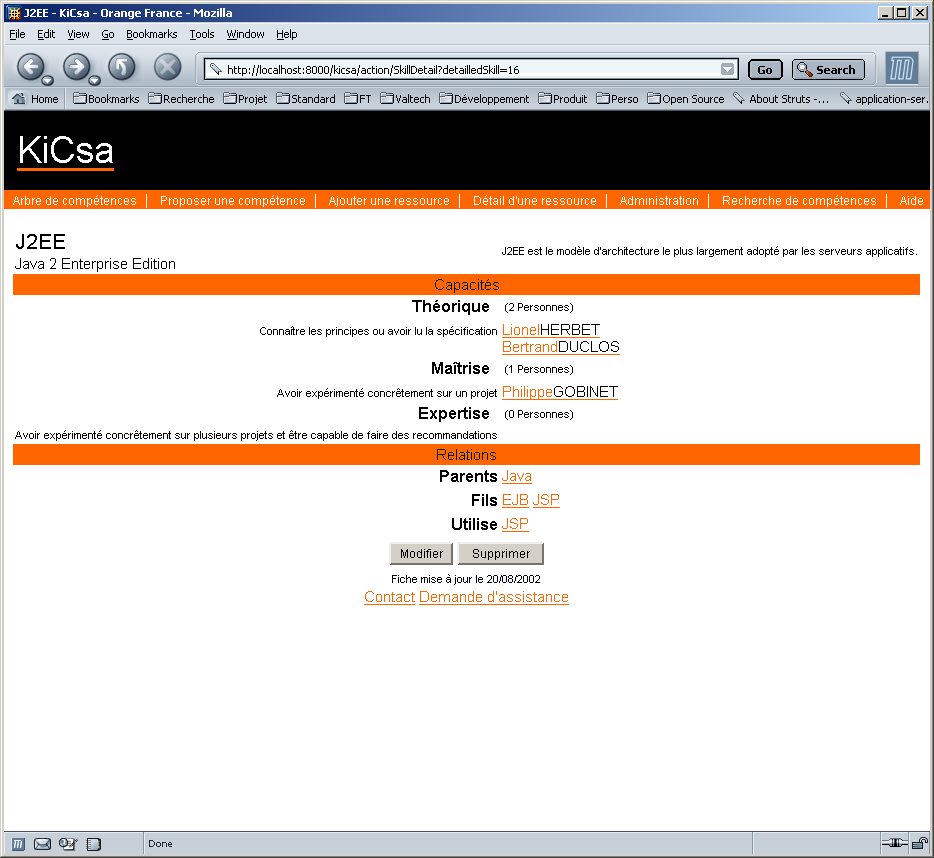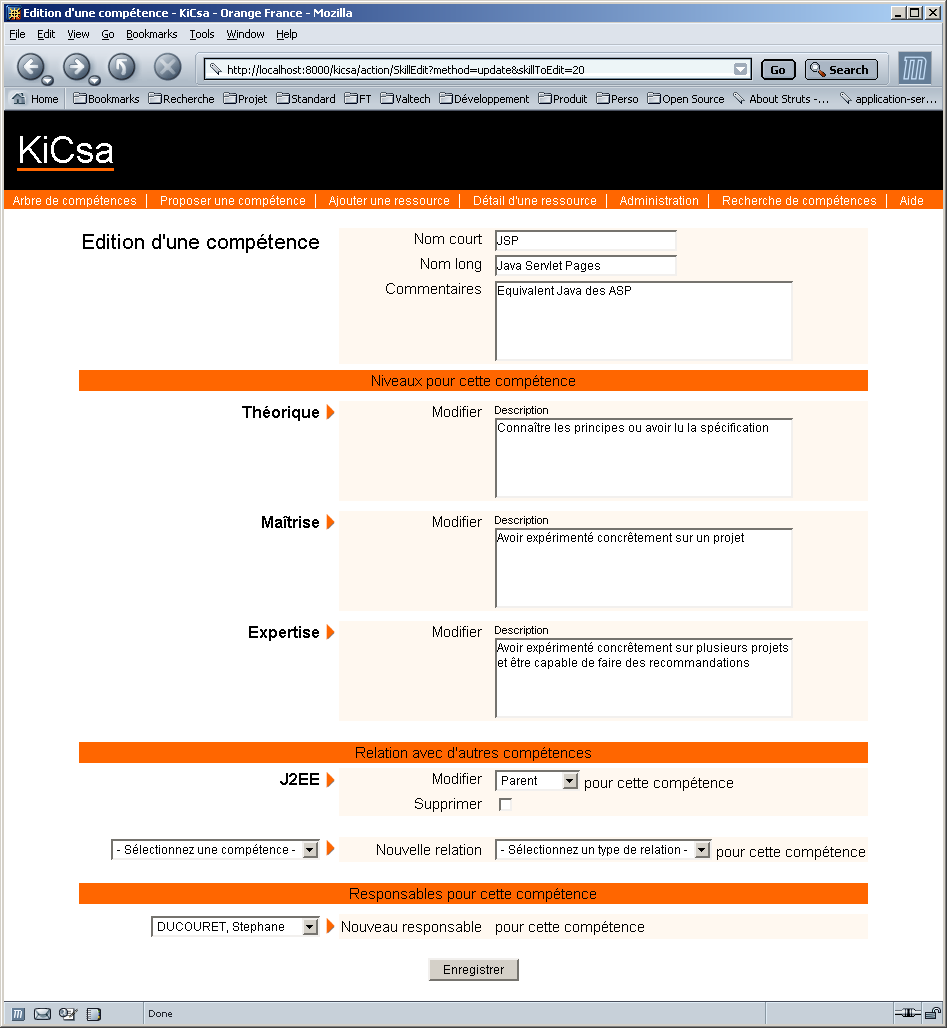User's manual
Here are some screenshots of KiCsa 0.4 (alpha build) :
- Skill tree
- Skill details
- Skill edition (creation/update)
- Employee details
- Employee edition (creation/update)
- Administration
The skill tree starts from the "root skill", which can be selected from the Administration page. It displays :
- the current skill, whose details can be displayed by clicking on it
- the parents of the current skill, as defined by the "Parents" relationships in the Administration page
- the childs' short and long names of the current skill

This page displays various informations about a given skill. This includes :
- the skill's short name
- the skill's long name
- the skill's comments
- people that have abilities for this skill, at various level of expertise. For each of these levels, a description is provided, specific to this skill (expertise on C++ is not described as the same as expertise on Java for instance).
- the relationships that this skill have with others. This typically include "parent" skills, but can be customized easily (thanks to the <kisca:relationships> JSP tag) as this screenshot shows.
- workflow transitions that can be initiated from this page (considered as a workflow activity). For example one would typically like to initiate a service request to the IT departement regarding this skill. Workflows transitions displayed consist in hyperlinks (URI and label), which can be parameterized by page.
From this page can be initiated skill modification (update) or removal (with confirmation dialog).

The skill edition page allow the user to provide information about a skill. This includes :
- the skill's short name
- the skill's long name
- comments about the skill, like a textual description, including references to resources of interest (hyperlinks).
- ability levels' descriptions for this skill. The levels are proposed according to the configured root skill, with the root skill's levels' description as default descriptions.
- relationships from this skill to others. Typically you would like to connect the edited skill with a "Parent" (more generic) one. Remember that you can add as many relationships as you think it make sense to do so, including multiple relationships of the same type (the Java skill may have "Parent" relationship with both Language and Platform for example). Also remember that editable relationship are only those that starts from the edited skill. That means for example that "child" relationships are not editable, just because they don't exist (instead, a "parent" relationship exist from the childs to this skill).
- owners of this skill, that are allowed to manage it.
This page will depend on wether you are creating or updating the skill. At creation time, you are only allowed to add a relationship (the first one). At update time, you are allowed to add but also remove or modify an existing relationship. For example you might want to change a JSP--Parent-->Servlet relationship to JSP--Use-->Servlet.
To enforce vitality of the thesaurus and cooperation of everyone, anybody is allowed to edit a relationship. However this does not mean that the modification will be accepted. Instead the proposed modification is sent to the owner of the skill, who accept it or not. In case of creation, the proposal is sent to skill parents.
The employee details shows various details about a referenced employee. You may access this page consecutively to a employee search or a skill details page displaying able employees for this skill.
The displayed information includes :
- the employee's first name
- the employee's last name
- the employee URI, which may link to its detailled page in the organization's employees directory, the employee's personal page on Internet, or whatever you want.
- the employee's entity inside the organization (typically a department name).
- the employee's entity URI, which can link to its detailled page in the organization's entities directory, some organizational departement's home page, and so on.
- the employee abilities regarding a skill (linked to skill details) at some level of expertise.
- workflow transitions that can be initiated from this page (considered as a workflow activity). For example one would typically like to initiate a service request to the IT departement regarding this employee that have some abilities of interest for a given mission. Workflows transitions displayed consist in hyperlinks (URI and label), which can be parameterized by page.
Employee edition (update/creation)
The administration page allows to define :
- the relationship types that are allowed between skills. Some of these types can be tagged as "Parent" types, which make them interpreted as ancestors in the skill tree view.
- the root skill, from which the tree view is displayed. For example one might want to see the root skill as the "IT" skill for its departement, instead of browsing the whole skill tree defined by the entire organization.



